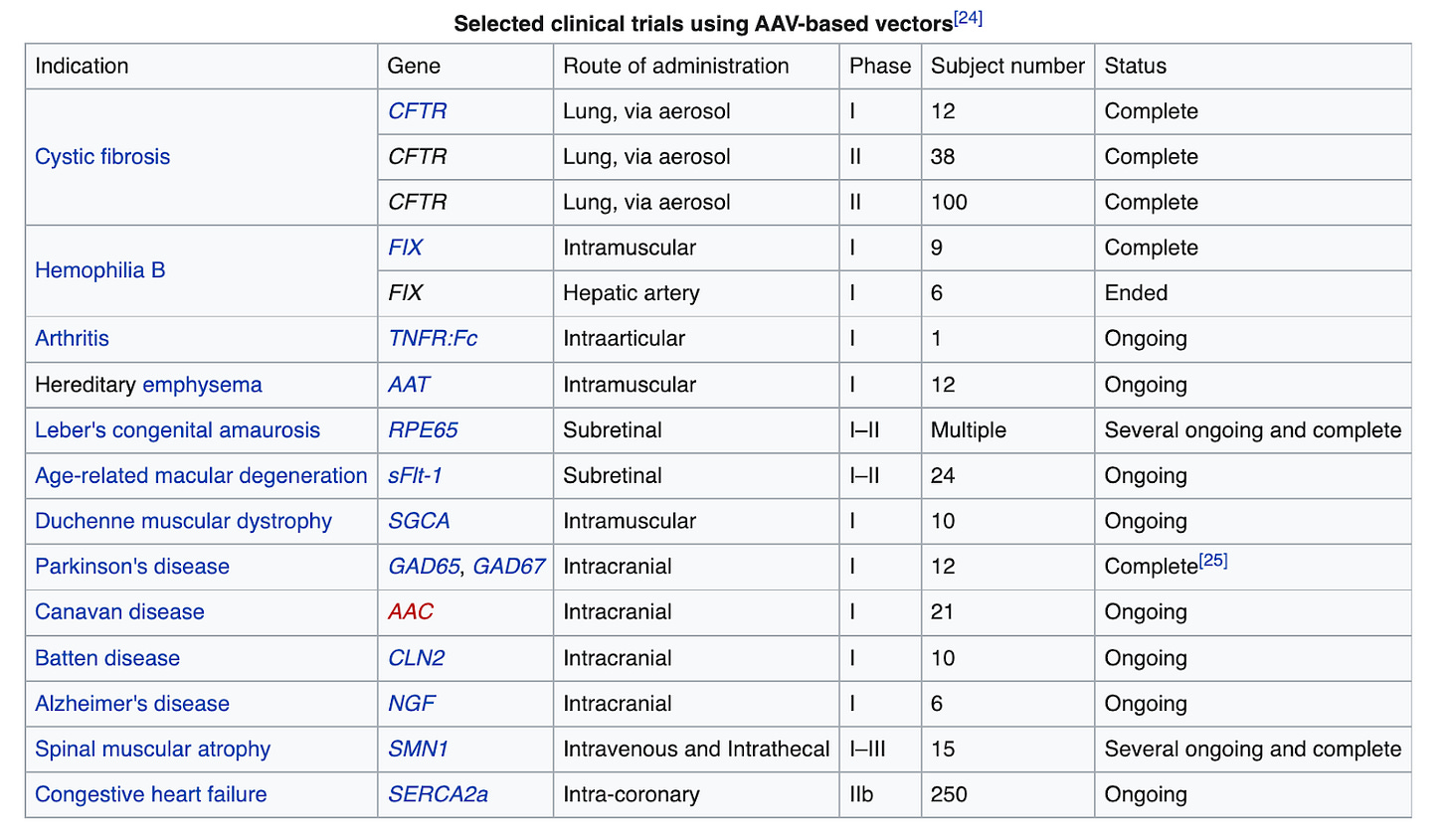A Brief Introduction to AAV Gene Therapy
Estimated Reading Time: 5 minutes
TL;DR
This week, we give a brief introduction to AAV gene therapy along with a roundup of some interesting news around the web, such as the first electric passenger plane nearing the market.
Adeno-associated Viruses (AAV) Are Useful Tools for Gene Therapy

Adeno-associated viruses (see figure above) are a family of viruses known for inducing a mild immune response, a property which makes them an attractive viral vector for human gene therapies. As the table below shows, many clinical trials have been launched for AAV gene therapies with some promising results in Phase I and Phase II trials (first figure below). More recently, two AAV gene therapies have been approved by FDA (source), building considerable commercial excitement (second figure below).

A number of open scientific questions still remain in AAV therapeutic design. Potential therapeutics can target different capsids and promoters which can significantly affect the efficacy of the treatment (source). There also remain considerable concerns about toxicity with AAV treatments. It is likely that several more AAV gene therapies will be approved in the coming years.

Small Electric Passenger Planes Will Soon Be Here

Israeli startup Eviation will soon launch the maiden flight of its all electric passenger aircraft. These first planes will be small private jets. Major challenges still remain before electric aircraft can become mainstream (source).
Weekly News Roundup
https://spectrum.ieee.org/ai-chip-design-matlab: AI-Driven chip design is heating up.
https://www.quantamagazine.org/computer-scientists-prove-why-bigger-neural-networks-do-better-20220210/: An intriguing theoretical result demonstrates that larger neural networks are needed to learn more robust functions. This result takes an intriguing first step towards explaining why larger neural networks can at times learn more effectively than smaller neural networks.
https://www.wsj.com/articles/us-inflation-consumer-price-index-january-2022-11644452274: US inflation rates reach a high of 7.5%, numbers unseen in 40 years
https://spectrum.ieee.org/andrew-ng-data-centric-ai: Andrew Ng is pushing a new drive towards data-centric AI. This discipline which advocates keeping architectures fixed and improving datasets in many ways codifies tricks that practitioners had already been using for decades. Creating systematic techniques for data engineering and turning the discipline from an art to a science could yield powerful real world improvements.
Feedback and Comments
Please feel free to email me directly (bharath@deepforestsci.com) with your feedback and comments!
About
Deep Into the Forest is a newsletter by Deep Forest Sciences, Inc. We’re a deep tech R&D company building an AI-powered scientific discovery engine. Deep Forest Sciences leads the development of the open source DeepChem ecosystem. Partner with us to apply our foundational AI technologies to hard real-world problems. Get in touch with us at partnerships@deepforestsci.com!

